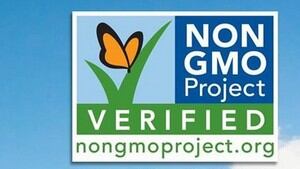He was citing Cargill’s proprietary consumer research, IngredientTracker, conducted May 2016 with a sample size of 5,000 consumers. Among grocery shoppers in the packaged food aisles, “sweeteners are certainly top of mind and a hot topic,” he added.
Today, sweetener manufacturers are faced with a double whammy—firstly, more consumers want to cut the amount of sugars they consume, leading to manufacturers reducing sugar in their products. The inclusion of added sugars to the nutrition facts panel will also have an impact on consumer perception and purchase decisions, according to Cargill principal food scientist Wade Schmelzer.
On the other hand, there’s increasing demand for ‘clean label,’ a marketing term that is largely undefined and differs from one consumer to the next, but is often boiled down to ‘naturally derived ingredients’ that are ‘easy to pronounce’ and, often times, not genetically engineered, in a way narrowing the parameters of how manufacturers innovate in the sugar-alternative space.
What does ‘clean label’ mean in the sweetener space?
Consumer preferences around clean label sweeteners are very diverse, according to Abigail Storms, vice president of platform management, sweeteners at Tate & Lyle, but Ipsos data revealed that US consumers equate honey (65%), stevia (48%), agave (41%), maple syrup (38%), and monk fruit (35%) as clean label, she said.
“So, if your consumers are more concerned about the source of sweetening ingredients, then you’re going to want to consider sweetening ingredients with more of a ‘health halo,’” she added.
But when working with sweeteners that aren’t (or aren’t yet) kitchen cupboard staples and thus unfamiliar to many consumers, Storms said that consumers seek more clarification. An example of this is Tate & Lyle’s Dolcia Prima-branded allulose, an ultra-low-calorie sugar made using enzymatic conversion of corn. Quest Bar uses this ingredient to sweeten its bars, and produced a video to explain to consumers what the ingredient is.
“We are continuously working with our customers to help them educate their consumers on the health benefits that sweetening solutions provide – even if these solutions are a bit harder to pronounce on a label,” she added.
Even among the top five familiar sweeteners identified by Ipsos, naming and branding matters. Cargill, which makes the branded stevia leaf extract portfolio ViaTech, found in its proprietary research that “stevia leaf extract is seen as healthful and is an ingredient that will drive purchase interest on pack,” said Ohmes. In fact, “’Stevia leaf extract’ is seen as very positive by consumers, even better than ‘stevia,’” he added.
Multiple ingredients to replace sugar
As sugar isn’t just used for its sweetness (it also provides texture), this means ingredient manufacturers need to innovate around ‘clean label’ outside of the sweetener space as well to provide close alternatives to sugar.
“In chocolate milk, for instance, Cargill has developed a no-sugar added version using ViaTech to deliver sweetness and slight increases in concentrations of starch and carrageenan, already in the ingredient declaration, to replace the mouthfeel that sugar provided,” Schmelzer said.
The GMO debate
According to Afrouz Naeini, senior marketing manager of sweetness and beverage at Ingredion, GMO labelling also drives consumer perception of a product, and thus, demand of what type of sweetener a product manufacturer will include.

“Perceived knowledge of GMO, while still low, has more than doubled since 2012. Despite perceived knowledge of GMOs there is confusion among consumers,” she said, citing NMI’s Health & Wellness Trends Database. “The level of concern about GMO’s continues to rise in 2015 across all generations. While ‘GMO-free’ product launches have leveled off in Europe, the number continues to grow dramatically in the US”
As a response, Ingredion operates three production sites for non-GMO sweeteners in North America. “Manufacturers can enjoy shorter lead times, enabling the ability to reach speed-to-market targets more easily,” she added.
For Cargill, this means getting non-GMO certification. “Cargill recently announced a number of ingredients that received Non-GMO Project Verified status, including Cargill’s stevia sweeteners,” said Pam Stauffer, global marketing programs manager at Cargill. “This opens new doors to partner with customers that seek to satisfy consumer demand for the highly recognizable Non-GMO Project butterfly logo on packaging in addition to great-tasting sugar reduction.”
But this doesn’t mean non-GMO bound to replace all genetically modified ingredients—the three companies we spoke with all maintain GMO and non-GMO ingredient portfolios to serve a wide variety of customers.
“Is the manufacturer looking to achieve a non-GMO claim, or is the formulator more focused on delivering a product at a lower price point? Some consumers are willing to pay a premium for specific claims, and some are not,” Storms said. “Functionally, there is no difference between the non-GMO and GMO ingredients.”
